Current Projects
Country: Ecuador
Showing 1 - 13 of 13
13 results found
Accelerate the introduction of low-carbon electric mobility and reduce fossil fuel consumption, greenhouse gas emissions and air pollution in the transport sector of Ecuador
To support forty-three (43) developing countries to prepare and submit Biennial Transparency Reports (BTRs) and National Communications (NCs) that comply with the United Nations Framework Convention on Climate Change (UNFCCC)/Paris Agreement (PA) reporting requirements; and respond to their national development goals.
To strengthen the national transparency system in Ecuador to meet the requirements of the Enhanced Transparency Framework (ETF) under the Paris Agreement on Climate Change
To assist GEF-Eligible Parties to the Cartagena Protocol on Biosafety to prepare and submit their Fourth National Reports on measures that each Party has taken to implement the Cartagena Protocol on Biosafety
Implementing the Strategic Action Program (SAP), promoting Integrated Water Resources Management (IWRM) and source-to-sea approaches, to improve ecological, social and economic benefits and, enabling the countries to meet their relevant SDG and convention
To enable country Parties to collect necessary biophysical, socioeconomic data, establish sound reporting and monitoring systems at national level and report against the UNCCD Strategy
To Assist GEF-Eligible Parties to the Cartagena Protocol on Biosafety to prepare and make timely submission of their Third National Reports on measures that each party has taken to implement the Protocol in line with Article 33.
To strengthen the capacity for implementation of the updated POPs Global Monitoring Plan (GMP) and to create the conditions for sustainable monitoring of POPs in the Latin American and Caribbean Region
To assist Ecuador to have a workable and transparent national biosafety framework in place, to fulfill its obligations as a Party to the Cartagena Protocol on Biosafety and thus contribute to ensuring an adequate level of protection of biodiversity and human health from modern biotechnology.
The development objective is to contribute to the effective protection and sustainable use of the water and land resources of the Amazon Basin, based upon the principles of integrated water resources management (IWRM), and manage the effects of climate change (CC) within Amazonian communities in a coordinated and coherent way. This will be accomplished by the eight signatory countries of the Amazon Cooperation Treaty, within the framework of the ACTO, through a program of strategic interventions. Project’s specific objective is to elaborate a Strategic Action Program (SAP) for the Amazon Basin and create the necessary enabling social-economic environment for the future implementation of the SAP, inclusive of strategic measures relating to adaptation by the countries to the effects of global climate change on the Basin.
The objective of the Enabling Activity (EA) grant is to support countries in 1. Assessing the extent to which their current legal, policy and institutional framework allows for promptly becoming parties to the Agreement under the United Nations Convention on the Law of the Sea on the Conservation and Sustainable Use of Marine Biological Diversity of Areas beyond National Jurisdiction (BBNJ Agreement) and enables their implementation of the Agreement. 2. Carrying out preparatory work in the context of their ratification, approval, acceptance or accession process towards becoming parties to the BBNJ Agreement. 3. Supporting their readiness to implement the BBNJ Agreement.
Accelerate Minamata Convention compliance through better understanding of mercury trade trends in Latin America and promotion of regional cooperation towards an improved control of major mercury flows
To get a common understanding of the Amazon Aquifer Systems (AAS) (TDA), the invisible giant, to strengthen existing regional governance, and to develop and endorse an integrated groundwater management approach (SAP) for its protection and sustainable use, thereby enhancing water security and ecosystem resilience in the Amazon region.
Showing 1 - 13 of 13




